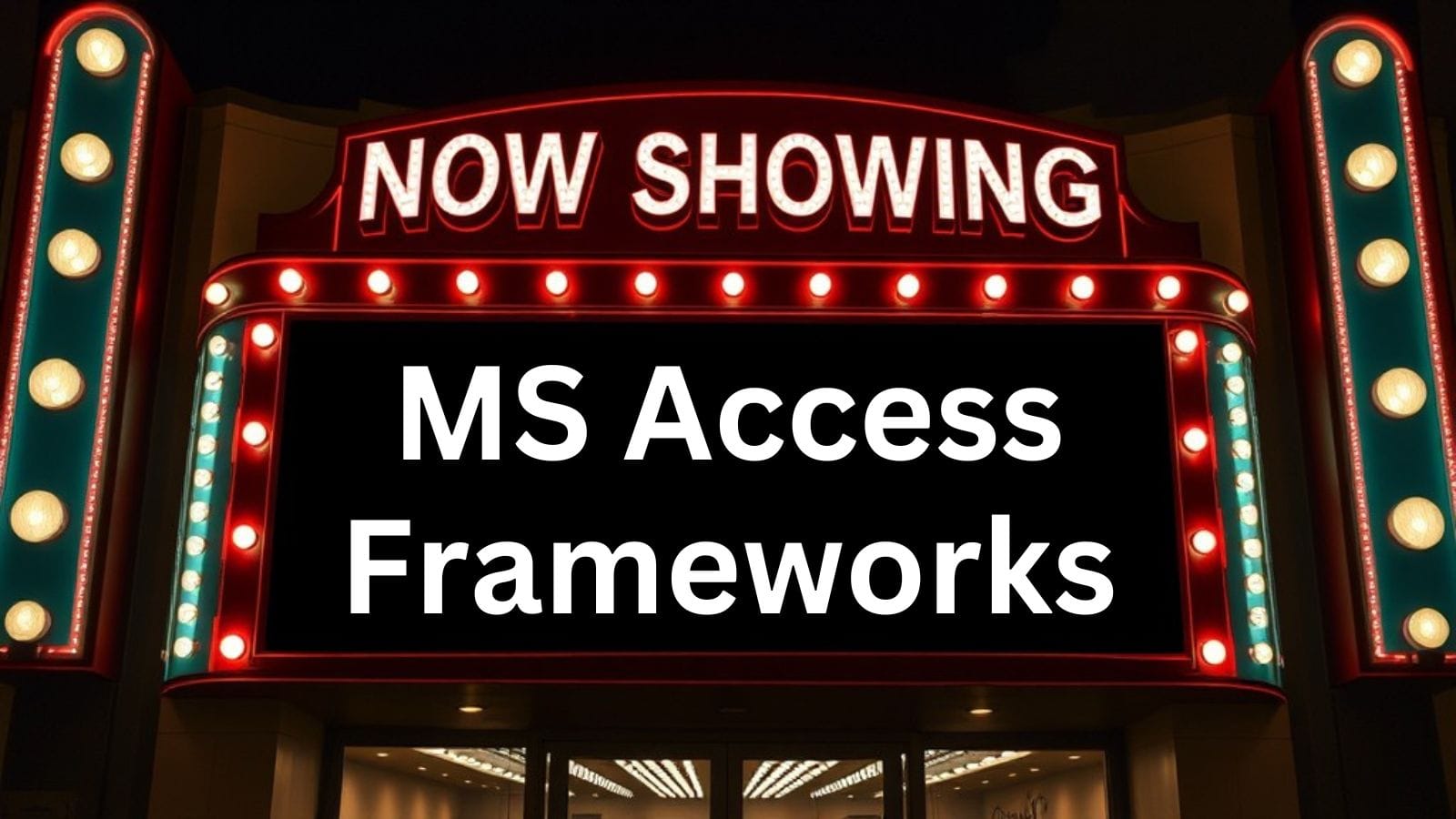Access Frameworks with John Colby
Why Your Access Apps Need a Framework (and How to Build One) (an Access User Group talk with John Colby)

Development frameworks are ubiquitous in modern software engineering, but how do they apply specifically to Microsoft Access applications?
In this engaging Access Pacific user group presentation, John Colby shares his extensive experience developing and implementing frameworks for Microsoft Access applications. Drawing from his work creating enterprise-level solutions in the early 2000s, John explains the fundamental concepts behind frameworks, their practical implementation, and how they can help standardize functionality across multiple Access applications.
Whether you're struggling with managing common functionality across multiple Access applications or looking to make your development process more efficient, this detailed exploration of Access frameworks provides valuable insights into structured application development.
What is a Framework?
Basic Definition
- A structure for supporting or enclosing something else
- A skeletal support used as the basis for construction
- Provides fundamental structure for building larger systems
Framework Examples
- Windows operating system as a framework
- Microsoft Access itself as a database framework
- Custom frameworks built on top of Access
Why Use a Framework in Access?
Key Benefits
- Standardize functionality across applications
- Implement consistent behaviors
- Reduce code duplication
- Centralize common features
- Simplify maintenance
Common Use Cases
- Consistent UI behaviors
- Form control handling
- Security management
- System variable management
- Cache management
Framework Implementation Details
Core Components
- Class modules for specific functionalities
- Collections for managing instances
- System variable tables
- Security tables and permissions
- Caching mechanisms
Technical Considerations
- Library references
- Table structures
- Class initialization
- Event handling
- Data caching
Framework Architecture
Class Structure
- Framework base class
- Individual component classes
- Collection management
- Event synchronization
- Control wrapping
Data Management
- System variable tables
- Security tables
- Default values
- Cache management
- Configuration options
Development Process
Creating Libraries
- Develop and test in main application
- Export class modules
- Set class properties (Createable, Exposed)
- Import into library database
- Reference from applications
Best Practices
- Keep business logic separate
- Use consistent naming conventions
- Implement proper cleanup
- Handle initialization properly
- Manage caching effectively
Conclusion
The presentation provided a deep dive into Access framework development, demonstrating how proper framework implementation can significantly improve application maintainability and consistency. While some concepts may seem complex, the underlying principles of code reuse and standardization remain valuable for Access developers at all levels.
Recording
The full recording is available on YouTube:
Join Live!
Want to get even more out of these presentations? Join the live Access User Group events! The next upcoming events are listed on the AUG Event Calendar.
Attending live gives you the opportunity to:
- Interact directly with presenters during Q&A sessions
- Network with other Access developers
- Share your own experiences and challenges
- Get immediate answers to your specific questions
- Participate in group discussions
With multiple user groups across different time zones (and languages!), you're sure to find a meeting time that works for your schedule.
Acknowledgements
- Base cover image generated by FLUX-schnell
- Initial draft generated by Claude-3.5-Sonnet
